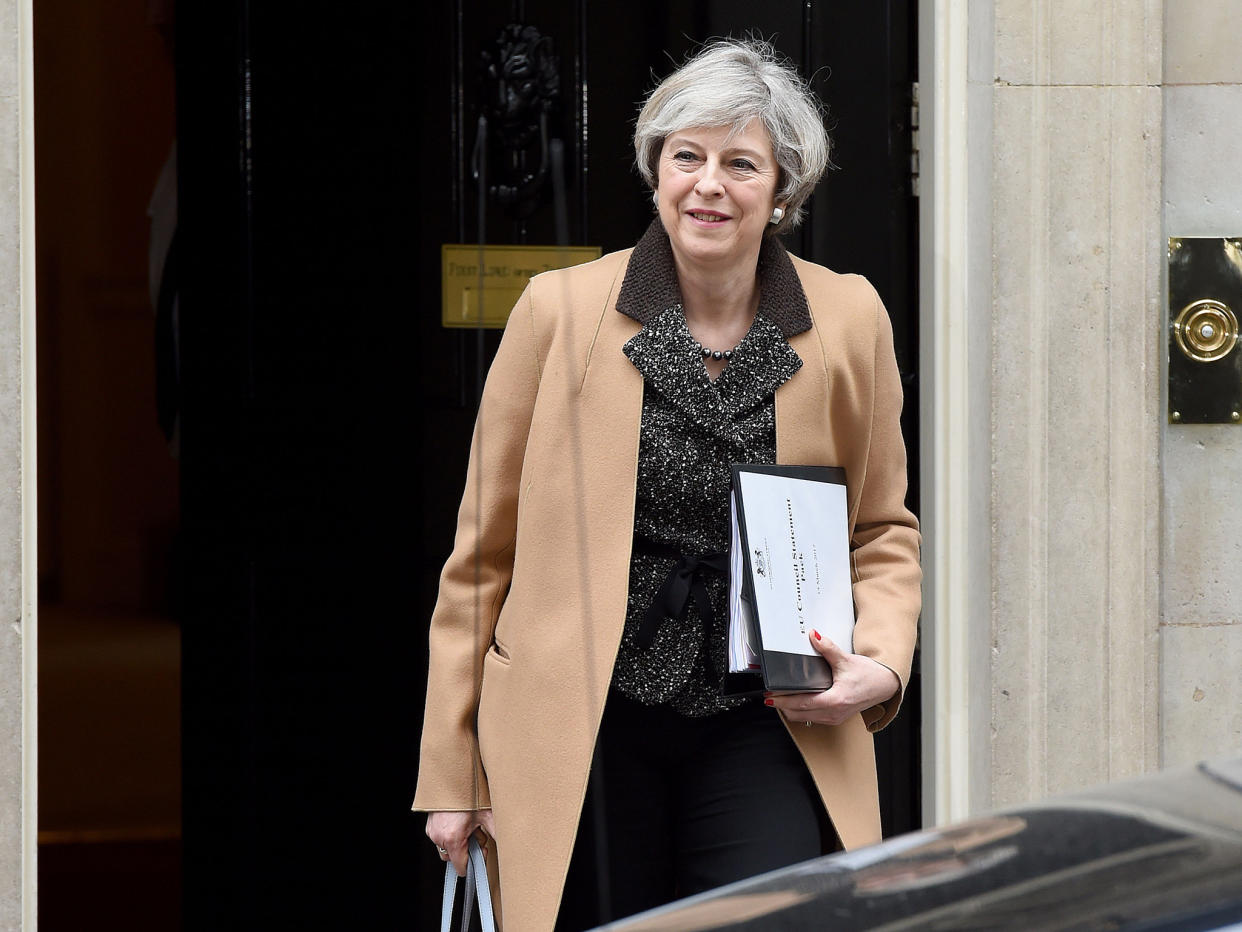Whether Brexit brings you joy or sorrow, this is a moment of collective relief. Finally, negotiations can begin

With her finger having hovered for months over the Article 50 trigger, Theresa May will on Wednesday, finally, fire the gun on Britain’s withdrawal from the European Union. With so much at stake, and so little clarity on the kind of deal the UK even wants, there are plenty who will regard it as a shot in the dark.
For Brexiteers it will nonetheless be a moment of joy, confirmation that last year’s referendum has taken effect. For Remainers, however, there will be a sense of profound sorrow.
There may be a tinge of relief, too, that at least now the negotiations can begin. After all the meaningless “Brexit means Brexit” platitudes, surely nobody would resist moving on from the banalities offered up so far by the Government.
Perhaps the reality of the impending break is showing. The Prime Minister has been notably more measured in her recent remarks, making plain that her goal is to retain a “deep and special partnership” with the European Union. Key figures on the EU side have also reined in their spikier barbs, with European Commission President Jean-Claude Juncker expressing a desire for “fair and friendly” negotiations.
Both sides will be hoping to make early progress on key questions, including the position of EU citizens already living in the UK (and UK citizens living in the EU) and the size of Britain’s exit bill.
Nevertheless, for almost every indication of willingness to compromise, a contrary signal seems to pop up.
With EU members desperate to ensure that Britain isn’t better off outside than in, British negotiators face a difficult task, with threat and counter-threat likely to be an ever-present feature of the divorce talks.
One overriding factor which politicians and bureaucrats would do well to keep in mind is the wishes of citizens across the continent – not only with regard to the minutiae of a prospective deal, but in terms of a broad and obvious desire to maintain peace, prosperity and cooperation between all of Europe’s nations.
Indeed, just as the Prime Minister should not assume that she has a mandate for a hard Brexit, so EU leaders should be cautious about hanging the UK out to dry if the consequences for their own citizens are adverse. As our chief economics commentator Hamish McRae noted in The Independent earlier this week, we have thus far heard much too little about what kind of relationship EU citizens want with Britain in the future. These negotiations are, after all, about the future lives of ordinary folk, not about personal triumphs for competing officials or Governments.
Brexiteers are prone to repeat the mantra that the British people voted for EU withdrawal, which conveniently ignores the fact that a vast swathe of the population either voted to remain, chose not to vote or were unable to. In a country of 64 million people, the votes of 17.4 million have led us to where we are today.
There is, therefore, an intrinsic tension at the heart of the Government’s negotiating position: quite apart from having to compromise with EU members, it will be seeking an outcome that is palatable to a divided public, and Parliament, at home. It is a big ask.
It be wrong to conclude, however, that there is any significant section of the British public which actively wants a bad Brexit. Some on the more extreme end of the Leave spectrum accuse Remainers of “talking Britain down” and of deliberately undermining the Prime Minister’s negotiating stance. That is nonsense that speaks only to a bleak future of buck-passing in the likely event that the British economy doesn’t immediately soar on leaving the EU.
The Government and its officials will rightly be under intense scrutiny for as long as the withdrawal negotiations take – probably longer. If it looks as if the best deal possible is a very bad one, they can expect serious opposition in Parliament.
But, ultimately, Wednesday is a day for realism and for the rolling up of sleeves. For however we each might feel about the prospect of Brexit, we can all at least agree with this message to the UK’s negotiating team: good luck.

 Yahoo News
Yahoo News 
